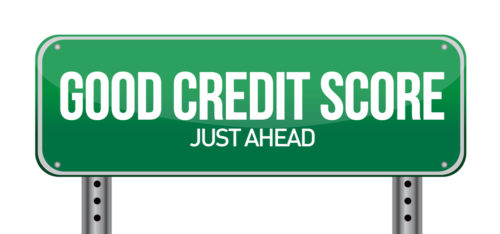Under the FICO model, 670-790 is considered a “good” credit score. Scores above 700 show a history of responsibility, something that the high 600s don’t necessarily reflect. But sometimes jumping over that 700 mark, into firmly good territory, can be difficult.These tips go for anyone trying to improve their credit score, but raising credit scores over 700 takes extra vigilance and some patience.
Table of Contents
Check Your Credit Report and Look for Errors
A lower credit score isn’t always reflective of individual responsibility. It could be a simple mistake, or even the result of identity theft. If creditors have an inaccurate record, they will give an inaccurate score.
In order to make sure that a credit report is accurate, ask for a copy from the three major credit bureaus, Experian, Equifax, and TransUnion. Everyone is entitled to one free credit report per year. Just because there is a mistake on one of your reports doesn’t mean that it is there on all of them, so be sure to look through each one individually. If there is inaccurate information found, begin disputing the offending items.
This isn’t a quick process, but it is well worth going through if you have a mistake on your credit report. FICO weighs some factors differently than others, and payment history and amount owed count for a combined 65 percent. These are the two categories that are most likely to be affected by a mistake on your credit report, so it can significantly better your score if you correct the error. The credit bureau will investigate your claim, and, if it has merit, the offending items will be removed from your credit report.
Make Payments On Time, Every Time
Missing payments can be one of the biggest indicators of financial irresponsibility. Additionally, if you miss payments and incur late fees, it might make it difficult to pay the full balance, which doesn’t bode well for your credit history either. It can be a slippery slope once you miss a payment, so it’s better to just pay on time, every time.
In order to make sure that everything is paid off, consider enrolling in an automatic payment program. Most institutions that bill monthly offer some sort of automatic payment option. For example, if you enroll in it to pay off your car loan, the lender will automatically take a certain amount out of your bank account at the same time every month, so you don’t have to worry about scheduling payments.
Another option is to draw up a schedule in a planner, on a mobile device, or somewhere else that is frequently seen. This will help remind you when a payment needs to be made, so you don’t let a due date accidentally slip by.
Reduce Your Credit Utilization
Credit utilization ratios measure how much credit one person is using against how much credit they have available. If there is a $5,000 limit on a credit card, and the cardholder only has $100 charged onto the card, that is a very low credit utilization ratio. This is a simplified example, since most people have more than one source of credit, including loans, but the principle remains the same.
Ratios are checked over time, and keeping a credit utilization ratio low helps raise your credit score. You want to keep your utilization ratio under 30 percent at the most.
Pay Down Your Debts
Making minimum payments on existing debt will only perpetuate the cycle. Interest rates will continue to raise your debt well past what you initially owed, making it that much more difficult to catch up. Instead, pay more than the minimum every month.
On smaller debts, pay them off in full. Following those two tips will help you manage your debt effectively, and a smaller debt-to-income ratio will raise your credit score.
Control Hard Inquiries
A hard inquiry is a request to see your credit report, and one is made every time you apply for a loan. Too many hard inquiries lowers your score, unfortunately. It only makes sound financial sense to shop around a bit, but too many in a short amount of time will lower your score.
If you are planning on taking out a loan, be smart and only apply for ones that you’re serious about. This will prevent your score from taking a hit.
Budget and Spend Responsibly
In order accomplish all of this, keep a strict budget. This will make sure that you’re allocating enough to pay down your debts and regularly pay your bills. Keep track of all of your spending, so you can see where possible budget-breaking points are.
Additionally, it’s important to spend responsibly. Impulse purchases might feel good in the moment, but they can ruin your budget. Set aside a small spending budget every month that you can use to make small indulgences, but make sure to keep it proportional to your budgeting goals.
Following these tips will help you raise your credit score, eventually over 700. It takes diligence to keep up these habits, but it is necessary if you want a good credit score.
Image Source: https://depositphotos.com/





